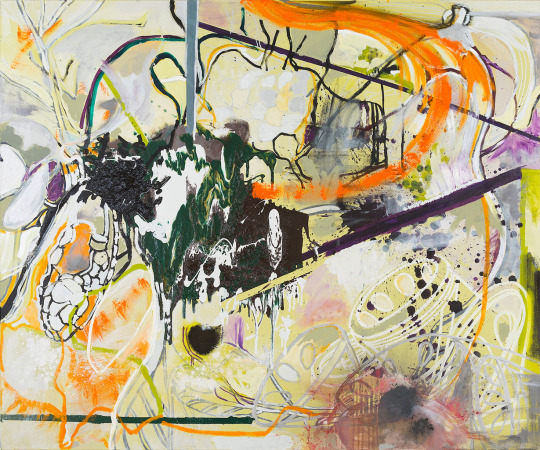#ArtistHotline | How to Look for Emergency Grants and Resources
Learn how to track financial relief for artists and freelancers, engage with other artists in difficult times, and ways to strengthen the arts community.
New York Foundation for the Arts (NYFA) recently hosted a webinar for artists and freelancers on best practices for finding much-needed financial aid during the COVID-19 pandemic. While the demand for emergency grants has grown exponentially due to this particular crisis, the tips shared can be adapted to those seeking any sort of emergency aid or opportunities in general. Keep reading to learn from our own experience of feeding NYFA’s Emergency Resources hub (which includes our Emergency Grants round-up page).
Before You Begin Your Research
- Putting a grant program together takes a lot of time and work. If you’re not finding opportunities that are a fit for you and your specific needs, check back in with trusted resources like NYFA’s Emergency Grants page regularly. An emergency program could be in the works to become available soon.
- A lot of the collaboration we’re doing right now, in this moment of crisis, has the potential to be the seed for meaningful connections for after this is all over. Take advantage of this moment to build and strengthen community.
- If a grant is currently out of funds but states they’re seeking to fundraise to reopen applications, bookmark it and periodically check their page. Spread the word to increase their fundraising reach.
Where to Look for Grants
- Sign up for newsletters! Find your local arts organizations by searching by neighborhood, city, state, and county. Locate discipline-based organizations (like Pen America for writers and Dance/NYC for performers) and organizations that are geared towards particular demographic audiences like Arts Administrators of Color (note: these do not need to cater to artists specifically and can focus on BIPOC, genderqueer, etc). And subscribe to emails from art publications and your local news outlets–especially if you live outside of a metropolitan area.
- Follow those mentioned above on Social Media. HINT: create a Twitter list of organizations, so you don’t get distracted with other news. E.g.: NYFA’s List of News Sources in the Arts.
- Get involved in initiatives by your local arts council. Here’s a list of arts councils in New York State. For a country-wide list, follow this link.
- Check if your arts discipline or your day-job has a Union.
- If you’re self-employed or a gig worker, organizations that cater to freelancers might be helpful. E.g.: Freelancers Union
- Check if you’re eligible for federal help through your local Small Business Administration (SBA) office. Several organizations are offering webinars and other resources that can help you with the application process. E.g.: International Documentary Association. You should look for organizations based on your discipline for better results.
Broaden Your Horizons
- Stay current on “Advocacy Alerts” from arts and social justice organizations.
- Answer Impact Surveys so organizations can learn how to help you.
- Keep applying for other opportunities (especially unrestricted cash grants). You can find them listed on NYFA Source; Candid (former Foundation Center), if you have access to their database; and NYFA’s Awards and Grants, for example.
- Don’t neglect the potential for earned revenue! Keep looking for opportunities and jobs on NYFA Classifieds. Consider sharing your expertise through online teaching portals like Skill Share and HireArtists.org (which doesn’t collect a fee).
- Let folks know you’re looking for help.
For Those Seeking to Collaborate
- Create a collaborative spreadsheet with your friends and establish a schedule for each of you to conduct research. Here’s a sample (to edit it, go to “File” and click on “Make a Copy” or “Download”).
- Establish networks of emotional support and in-kind exchanges.
- If you have a following, consider recurring donations platforms like Patreon. Step up your online presence and engage further with your audience.
- Create your own fundraiser specifically for regranting as emergency relief. Springboard for the Arts shared their experience with this process for folks who want to follow this path.
Keep Your Information Safe
Before applying for anything, make sure you’re dealing with a reputable funder, organization, or group of people that have a track record in the arts community. Google all the names you see, check organizers on LinkedIn, or simply ask around if anybody you know has heard of them before.
– Luiza Teixeira-Vesey, Designer/Marketing Officer
This event was presented by NYFA Learning. This article also draws inspiration from #ArtistHotline, an initiative supported by the Emily Hall Tremaine Foundation and dedicated to creating an ongoing online conversation around the professional side of artistic practice. Our goal is to help artists discover the resources needed, online and off, to develop sustainable careers. You can follow NYFA at @nyfacurrent on Twitter, Instagram, and Facebook. Share your tips and questions using the hashtag #ArtistHotline.
Image: Lydia Dona (Fellow in Painting ‘18), Golden Blasting into the Urban Tissue, 2017, Oil, Acrylic, Enamel, Metallic Paint and Laminated Iron Oxide Powder on Canvas





